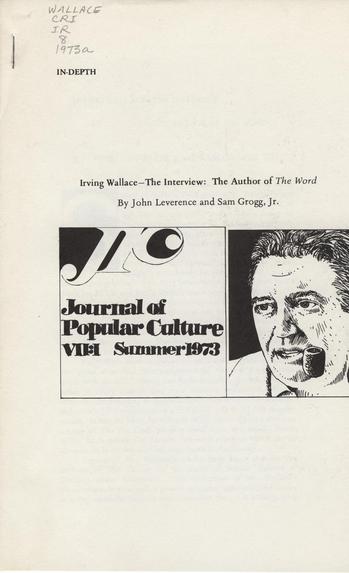In 1973, fresh off the publication of The Word, Irving Wallace gave a lengthy interview to the Journal of Popular Culture in which he discussed his approach to research and writing, his popular success, and his frustrated relationship with literary critics. The interview offers a clear picture of Wallace’s sharp intellect and wide-ranging curiosity; one minute he’s discussing a recent academic study on the social effects of pornography, and the next he’s meditating on the lingering influence of America’s puritanical culture. The interview confirms my growing sense that Irving Wallace was more thoughtful, funny, humane, and self-aware than the label “popular novelist” would indicate.
By far my favorite part of the interview, however, is Wallace’s recollection of an all-night, cocktail-fueled conversation he once had with the writer James Baldwin, in Cannes. In the interview, Wallace remembers telling Baldwin that he had just finished writing The Man, in which an African American man is elected President of the United States:
[Baldwin] looked at me with disbelief. “The hell you have. What credentials do you have to do that? How can you write about a black man?” I said, “The same way you were able to write about a white man in your last novel.” He said, “Fair enough.”
According to Wallace, he went on to stress how, as a white writer with a massive audience, he could impact white attitudes about race more readily than Baldwin could hope to — and, moreover, that he had a moral obligation to try.
Baldwin’s reply? “I hope it works.”
For me, this exchange offers a new glimpse into the politics of Wallace’s work, and offers yet another potential avenue which scholars might use to approach him, his work, and his audience.
